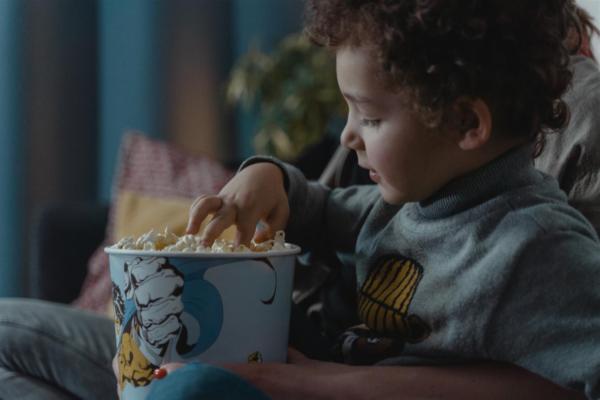A question that may cause controversy and arguments… At what time do you open your Christmas presents? Are you a first thing in the morning, race to tear the paper off kind of family? Do you patiently take turns and watch one another’s face light up (or fake a smile)? In my family, when I was a child, we unwrapped our Christmas presents not only after lunch but after the washing up too. My husband’s family, on the other hand, opened everything immediately as soon as they woke up. When we got married, there was great debate about what we would do!
I love surprises, so I love unwrapping presents. My husband does not like surprises, and would rather know what he is getting, choose it himself and preferably find the best deal before purchasing.
We all have different preferences, experiences and priorities when it comes to presents. For care-experienced children and their families, it’s another part of Christmas that might need to look a little different. Here are four reasons why that might be.
Surprise = uncertainty
Even if surprises are not your favourite thing, most of us can understand that a mysterious gift will probably reveal something nice. Because we know that, we can regulate our emotions accordingly.
For some care-experienced children, uncertainty can be scary and the emotions that arise can be difficult to handle.
“What if I don’t get what I’m hoping for?”
“What if someone else gets something that I want?”
“I’m not sure I remember what I asked for.”
Some children and young people might be able to understand and articulate how they’re feeling, but many can find it difficult. These feelings, emotions and thoughts may instead be communicated in behaviour that could be viewed as challenging or unexpected. When fostering and adoptive families know the child in their care, they might be able to guess with them at what might be happening and help them journey through big feelings. But if it’s a first Christmas together, then perhaps it will take some time to grow that trust and understanding. And for some children as they grow up they may struggle differently, so a child who has previously been ‘fine’ about presents could now respond in unexpected ways.
Certain behaviours are not children being ‘ungrateful’ or ‘disruptive.’ They are communicating what they’re feeling and experiencing.
It’s all too much!
In a room full of presents, there’s much to delight the senses. There are so many different things to look at, shiny coloured gift wrap under a tree full of lights, in a room full of people. There are sounds of paper being ripped and often loud reactions from those opening gifts. There are so many things to touch that it can be hard to know where to start, and there may be new smells as relatives open scented candles or soaps. This sensory overload can lead to children feeling dysregulated and can adversely affect their reactions and responses to what’s happening around them.
Marshmallows
Have you heard of the marshmallow test? An adult presents a child with one marshmallow and then announces that they’re leaving the room, giving the child a choice; they can eat one marshmallow now or wait until the adult comes back and, as a reward for waiting, eat two marshmallows.
Lots of children find it difficult to wait to open presents. Maybe some of you are guilty of trying to find the hidden stash of Christmas presents in your home when you were a child? For some children who have experienced trauma, because impulse control is less developed, the desire to open presents before it’s ‘time’ can be particularly overwhelming and difficult to handle.
Delayed gratification involves the ability to wait to get what you want. It’s part of child development and an important life skill applicable in a variety of contexts. We know that many care-experienced children have developmental delay as a result of their early life experiences. Studies suggest that many children will only begin to develop the cognitive ability to understand why delaying gratification may be beneficial between the ages of eight and 13. But for many care-experienced children, their developmental age is not necessarily the same as their chronological age and in some cases they can get ‘stuck’ at an age for a period of time. Expectations around what temptation they ‘should’ be able to resist may be put on children without account for their limited reasoning and understanding.
Christmas past
Father Christmas always wrapped the presents that went in your stocking. But this year, in your new foster family, he doesn’t – why?
Every Christmas has been different for you so far, because this is the third home you’ve lived in. You don’t have any special Christmas memories or repeated traditions, but everyone else seems to.
Maybe Christmas was a particularly difficult or frightening time in a previous home, with added pressures of the season leading to memories that are loud or painful. It’s not nice to be reminded of those times.
It can be too easy to assume that because we have a great Christmas in our home, it will erase or paper over any existing bad memories. Presents and all the traditions around them are a potential trigger for many children and young people. Fostering and adoptive families will learn and adapt with the children at the centre, but there is likely to be some pain along the way.
Naughty or nice?
I recently overheard a stressed parent tell one of her equally stressed children, “If you don’t stop yelling at your brother, I’m going to tell Santa and you won’t get any presents.”
It’s an unhelpful message that tells children that bad things happen because they are ‘bad’. For a child who’s had a difficult start in life, such a message could wrongly confirm their sense of culpability in the difficult things that have happened to them and add to their sense of shame.
So, what can we do to help the children in our families and communities enjoy Christmas? Should we skip the gifts this year? No! Presents are a way of demonstrating our love and care, and Christmas provides a great opportunity to let those we love know that we do. In our family, we just have to do a few things a little differently. Here are a few examples that might help you too.
Choose presents together
We sit and choose one of my children’s Christmas presents with him and talk about who it’s going to be from. I tell him when it has been delivered so he knows it’s arrived. This knowledge and understanding helps him handle his feelings around presents because we’ve removed some of the anxiety that surrounds it. And I still get the pleasure of wrapping each expected gift and watching his delight as he opens them.
Spread it out
Why not open a couple of presents each day and stretch the experience across the whole festive period? This could help prevent (any) children feeling overwhelmed, and gives a chance for everyone to enjoy their gifts as they open them!
Talk about it
Talk together about what works and what doesn't. Consider potential trigger points if it’s your first Christmas with a new member of the family, or you’re still getting to know the child or young person in your care. There’s no one-size-fits all approach to Christmas, so decide what you think will work best for your family and make sure everyone is aware. You might need to take some people (well-meaning and generous family members or friends) on a journey to understanding – feel free to send them this article if it helps!
If you have a fostering or adoptive family joining you over the festive period and there’s the possibility of present exchanges, why not ask the adults if there’s anything you need to know, or any way you could help make that part of your time together work for everyone?
No such thing as naughty!
We give gifts because we love one another, remembering the shepherds and wise men who brought gifts to Jesus that first Christmas. Jesus himself is the greatest gift. Our receiving of all he has for us has nothing to do with how ‘good’ we are; rather, it has everything to do with his generosity.
Many care-experienced children and young people have low self-esteem, fuelled by early life experiences and the impact that trauma has on the developing brain. Let’s move away from the idea that only ‘good’ children get gifts and enjoy giving simply because of who they are and how much they matter.
Alongside the joy of giving and receiving presents, and the delight (and occasional horror!) on faces, let's remember the greatest gift to all mankind that we remember. Jesus. Emmanuel. God with us.
----------------------------------------------
As you prepare for Christmas, we invite you to consider donating to Home for Good to help us find a home for every child who needs one. Learn more about our Christmas appeal here.











